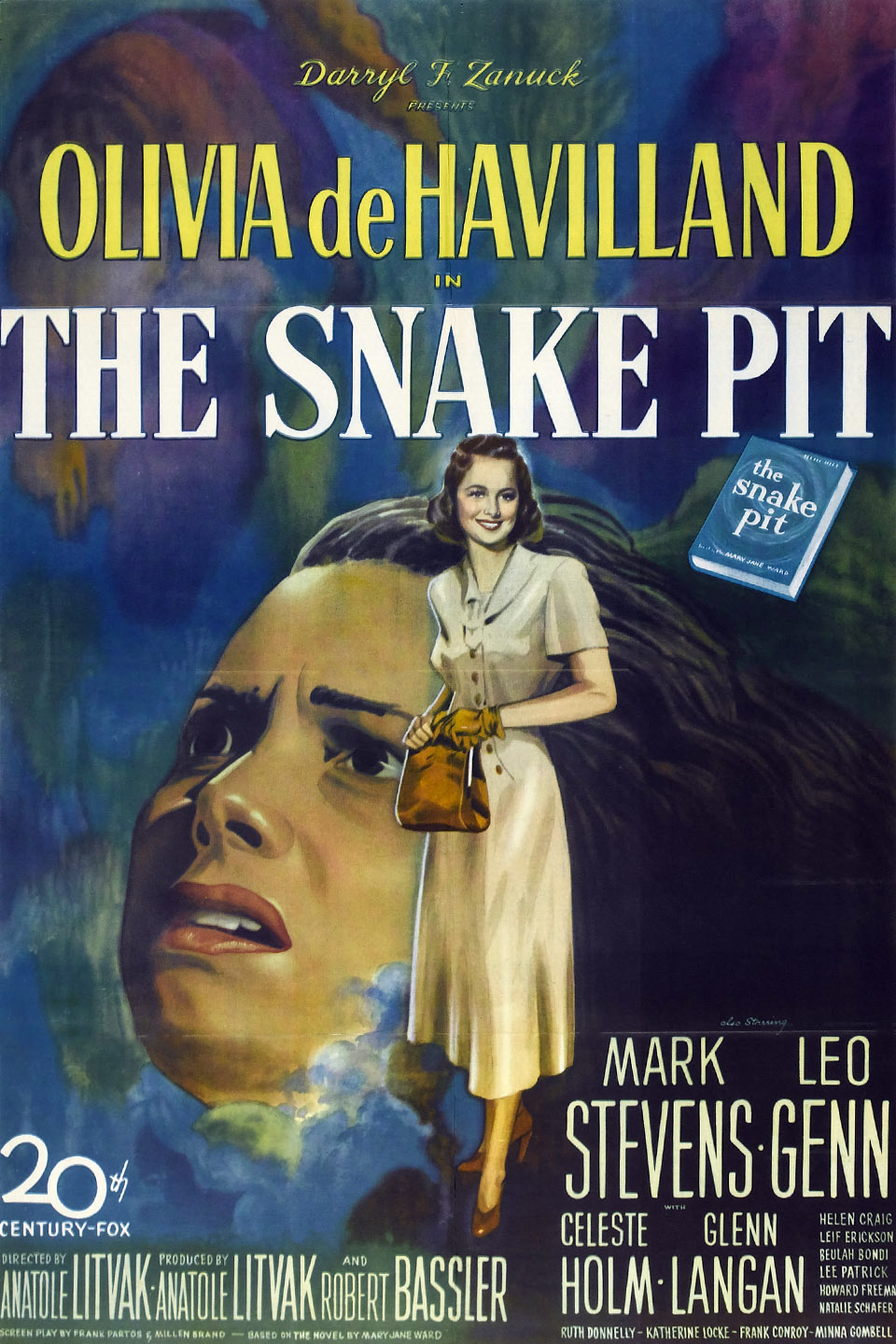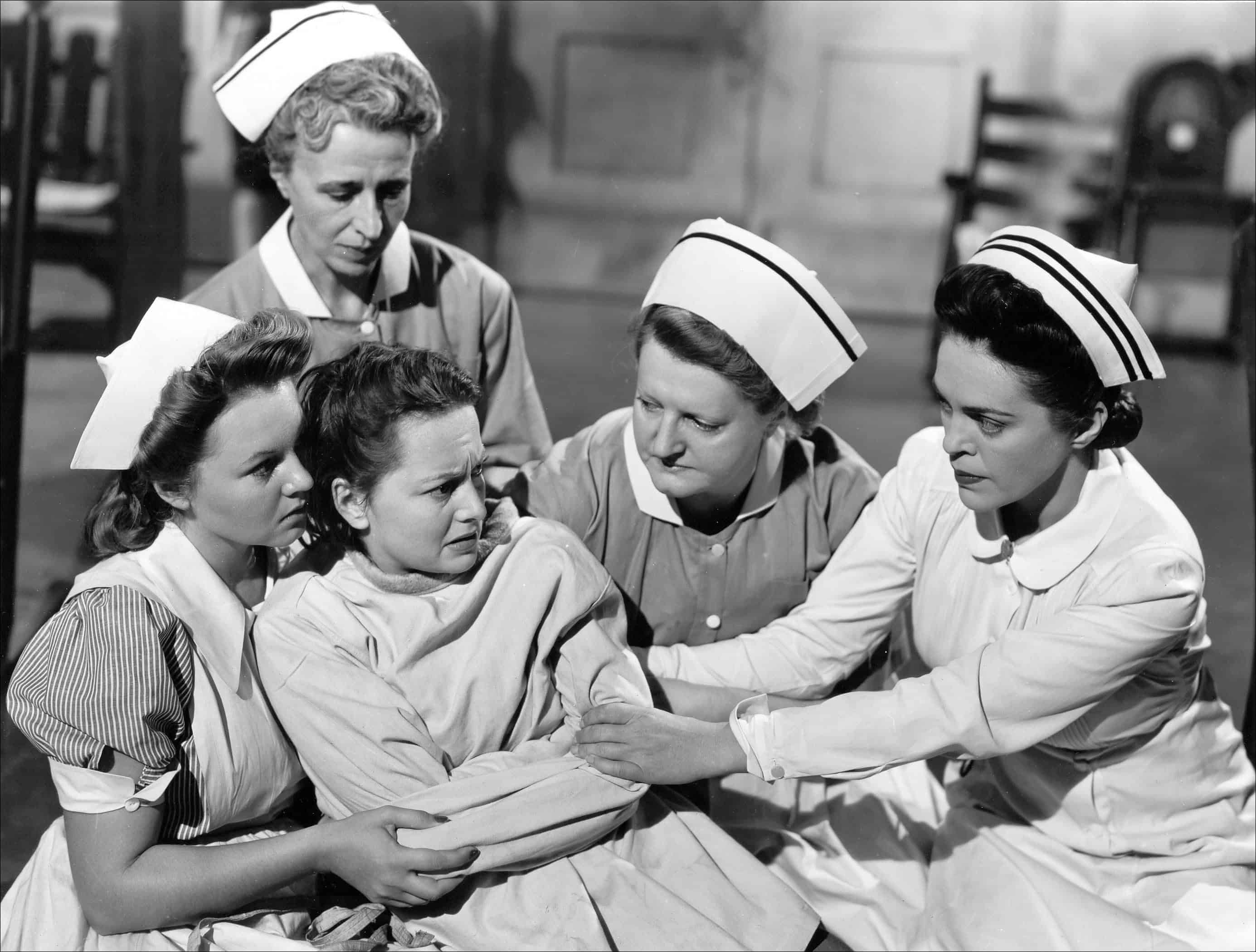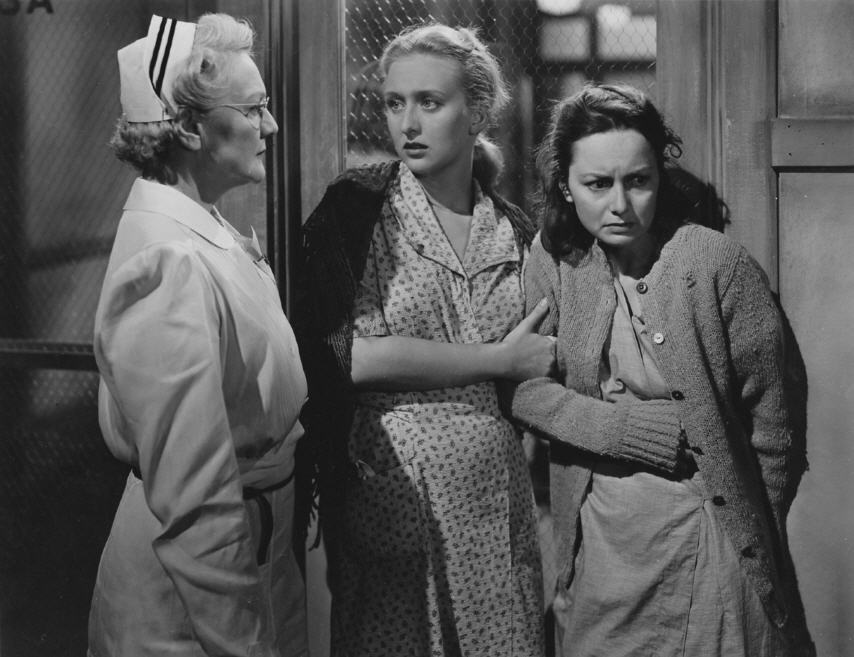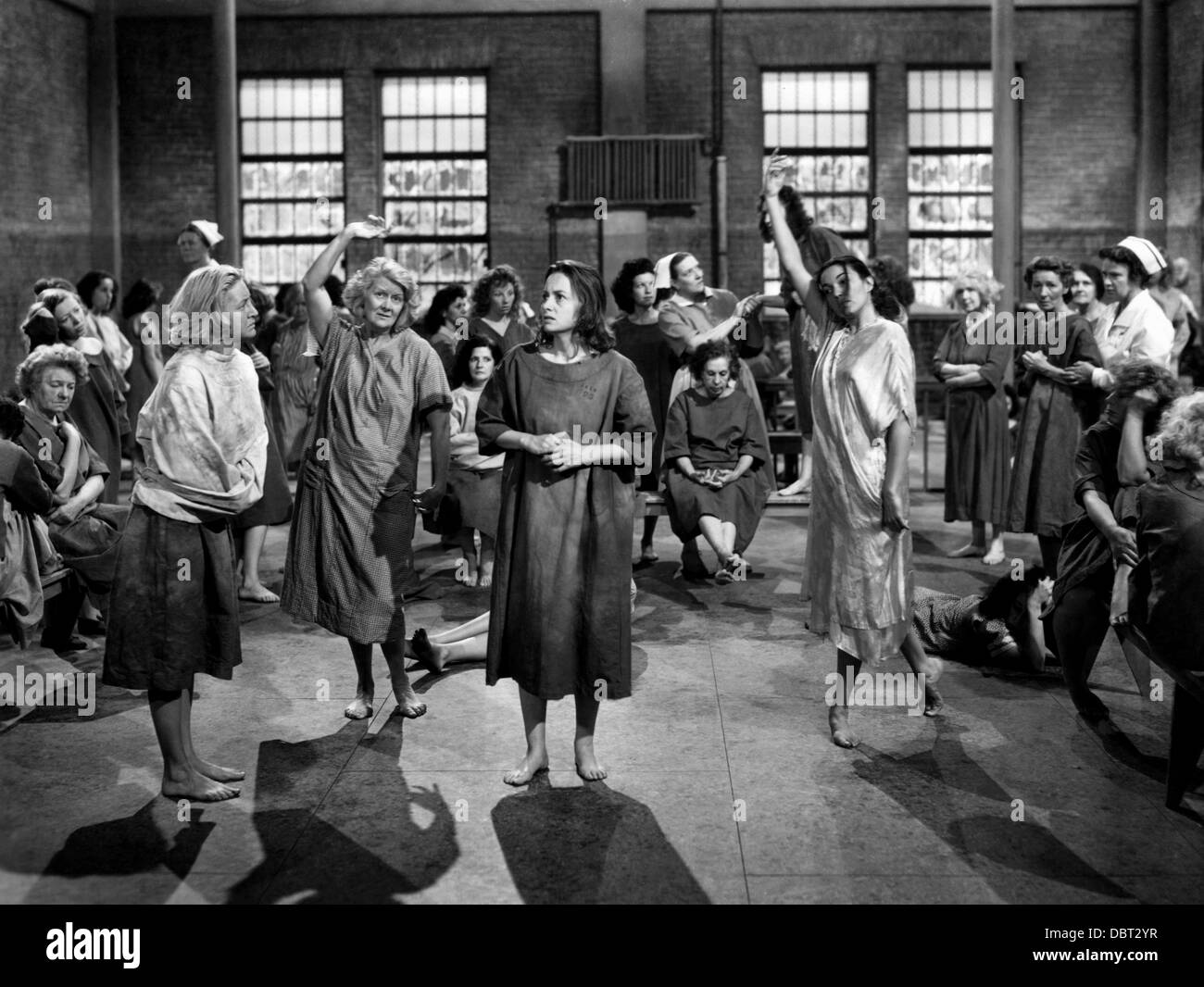← Back to Reviews
in
The Snake Pit
One of Hollywood's earliest looks at mental illness,The Snake Pit is a dark and uncompromising look at one woman's journey to complete mental destruction that is so compelling it received six Oscar nominations, including one for the Best Picture of 1948.

Fresh off her first Oscar win for To Each His Own, Olivia de Havilland was pegged for the complex role of Virginia Cunningham, a writer who has a nervous breakdown after her brief courtship and marriage to Robert Cunningham (Mark Stevens). Virginia has no memory of what led to her breakdown or being committed. As she enters the land of assorted fruits and nuts, she finds the only person she can trust is Dr. Kik (Leo Genn) even though his initial treatment regiment includes shock therapy. Eventually, Virginia improves to the point where she is assigned a private room and we think there is hope for her.

The Oscar nominated screenplay, based on a novel by Mary Jane Ward, is slightly confusing because when we meet Virginia, she has already been committed and her only connection to reality is the voices in her head, leaving the viewer in the dark about what happened. We are further frustrated when near about the halfway point, it seems that Dr. Kik knows what's wrong, but wants Virginia to figure it out for herself. The saddest part of Virginia's plight is how the hospital's administration want her out because of overcrowding, but Virginia knows she's where she's supposed to be and is not interested in getting out at all.

That was the most interesting aspect of the story. The fact that more than one opportunity arises for Virginia to leave the hospital but she doesn't want to. Eventually, her illness, as suspected, is connected to a childhood trauma and the reveal of that trauma was a bit of a letdown, but believable.

Director Anatole Litvak (Sorry Wrong Number) mounts a creepy and atmospheric melodrama that rivets the viewer to the screen and yearning for Virginia's return to reality. Litvak shows some real flair with the camera...loved that shot of de Havilland in the middle of the open ward that rises and expands upward while Virginia describes exactly where she is...the snake pit.

Olivia de Havilland loses herself in a brilliantly unhinged performance that earned her a Best Actress Oscar nomination. Ironically, de Havilland would win a second Oscar for her next film The Heiress. Stevens and Genn made the most of their screen time and if you don't blink, you'll catch the future Mrs. Howell, Natalie Schafer, in a cameo as well as Betsy Blair, who seven year later would star with Ernest Borgnine in Marty as a dangerous mental patient. It's a little over the top at times, but still a sad and frightening film from which I could not look away.
One of Hollywood's earliest looks at mental illness,The Snake Pit is a dark and uncompromising look at one woman's journey to complete mental destruction that is so compelling it received six Oscar nominations, including one for the Best Picture of 1948.

Fresh off her first Oscar win for To Each His Own, Olivia de Havilland was pegged for the complex role of Virginia Cunningham, a writer who has a nervous breakdown after her brief courtship and marriage to Robert Cunningham (Mark Stevens). Virginia has no memory of what led to her breakdown or being committed. As she enters the land of assorted fruits and nuts, she finds the only person she can trust is Dr. Kik (Leo Genn) even though his initial treatment regiment includes shock therapy. Eventually, Virginia improves to the point where she is assigned a private room and we think there is hope for her.

The Oscar nominated screenplay, based on a novel by Mary Jane Ward, is slightly confusing because when we meet Virginia, she has already been committed and her only connection to reality is the voices in her head, leaving the viewer in the dark about what happened. We are further frustrated when near about the halfway point, it seems that Dr. Kik knows what's wrong, but wants Virginia to figure it out for herself. The saddest part of Virginia's plight is how the hospital's administration want her out because of overcrowding, but Virginia knows she's where she's supposed to be and is not interested in getting out at all.

That was the most interesting aspect of the story. The fact that more than one opportunity arises for Virginia to leave the hospital but she doesn't want to. Eventually, her illness, as suspected, is connected to a childhood trauma and the reveal of that trauma was a bit of a letdown, but believable.

Director Anatole Litvak (Sorry Wrong Number) mounts a creepy and atmospheric melodrama that rivets the viewer to the screen and yearning for Virginia's return to reality. Litvak shows some real flair with the camera...loved that shot of de Havilland in the middle of the open ward that rises and expands upward while Virginia describes exactly where she is...the snake pit.

Olivia de Havilland loses herself in a brilliantly unhinged performance that earned her a Best Actress Oscar nomination. Ironically, de Havilland would win a second Oscar for her next film The Heiress. Stevens and Genn made the most of their screen time and if you don't blink, you'll catch the future Mrs. Howell, Natalie Schafer, in a cameo as well as Betsy Blair, who seven year later would star with Ernest Borgnine in Marty as a dangerous mental patient. It's a little over the top at times, but still a sad and frightening film from which I could not look away.
